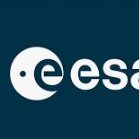Members Can Post Anonymously On This Site
Satellites for 5G to connect delivery vans seamlessly
-
Similar Topics
-
By NASA
(Oct. 25, 2024) — NASA astronaut and Expedition 72 Commander Suni Williams is pictured at the galley inside the International Space Station’s Unity module at the beginning of her day.Credit: NASA Students from Colorado will have the opportunity to hear NASA astronauts Nick Hague and Suni Williams answer their prerecorded questions aboard the International Space Station on Thursday, Nov. 14.
Watch the 20-minute space-to-Earth call at 1 p.m. EST on NASA+. Learn how to watch NASA content on various platforms, including social media.
The JEKL Institute for Global Equity and Access, in partnership with the Denver Museum of Nature and Science, will host students from the Denver School of Science and Technology for the event. Students are building CubeSat emulators to launch on high-altitude balloons, and their work will drive their questions with crew.
Media interested in covering the event must RSVP by 5 p.m., Wednesday, Nov. 13, to Daniela Di Napoli at: daniela.dinapoli@scienceandtech.org or 832-656-5231.
For more than 24 years, astronauts have continuously lived and worked aboard the space station, testing technologies, performing science, and developing skills needed to explore farther from Earth. Astronauts aboard the orbiting laboratory communicate with NASA’s Mission Control Center in Houston 24 hours a day through SCaN’s (Space Communications and Navigation) Near Space Network.
Important research and technology investigations taking place aboard the space station benefit people on Earth and lays the groundwork for other agency missions. As part of NASA’s Artemis campaign, the agency will send astronauts to the Moon to prepare for future human exploration of Mars; inspiring Artemis Generation explorers and ensuring the United States continues to lead in space exploration and discovery.
See videos and lesson plans highlighting space station research at:
https://www.nasa.gov/stemonstation
-end-
Tiernan Doyle
Headquarters, Washington
202-358-1600
tiernan.doyle@nasa.gov
Sandra Jones
Johnson Space Center, Houston
281-483-5111
sandra.p.jones@nasa.gov
Share
Details
Last Updated Nov 12, 2024 EditorTiernan P. DoyleLocationNASA Headquarters Related Terms
International Space Station (ISS) Astronauts Communicating and Navigating with Missions Humans in Space ISS Research Johnson Space Center Near Space Network Space Communications & Navigation Program Sunita L. Williams View the full article
-
By European Space Agency
Torrential rainfall causing deadly flash floods has hit southern and eastern Spain in regions including the Costa del Sol, where the city of Malaga is located, and Valencia in the east. As these areas struggle to cope with the aftermath, satellite technology has played a crucial role in assessing the damages of the affected areas.
View the full article
-
By European Space Agency
When disaster strikes, maintaining communication is critical. Yet, terrestrial (ground) networks are often compromised, leaving civilians stranded and first responders without access to vital information. Limited bandwidth can severely delay crisis management efforts, potentially costing lives. Recent events around the world, including devastating floods and wildfires, underscore the increasing relevance and urgency for advanced disaster response technology.
View the full article
-
By NASA
NASA astronaut and Expedition 72 Flight Engineer Nick Hague in the space station cupola. (Credit: NASA) Students from Iowa will have the opportunity to hear NASA astronaut Nick Hague answer their prerecorded questions while he’s serving an expedition aboard the International Space Station on Monday, Oct. 21.
Watch the 20-minute space-to-Earth call at 11:40 a.m. EDT on NASA+. Students from Iowa State University in Ames, First Robotics Clubs, World Food Prize Global Youth Institute, and Plant the Moon teams will focus on food production in space. Learn how to watch NASA content on various platforms, including social media.
Media interested in covering the event must contact Angie Hunt by 5 p.m., Friday, Oct.18 at amhunt@iastate.edu or 515-294-8986.
For more than 23 years, astronauts have continuously lived and worked aboard the space station, testing technologies, performing science, and developing skills needed to explore farther from Earth. Astronauts aboard the orbiting laboratory communicate with NASA’s Mission Control Center in Houston 24 hours a day through SCaN’s (Space Communications and Navigation) Near Space Network.
Important research and technology investigations taking place aboard the space station benefit people on Earth and lays the groundwork for other agency missions. As part of NASA’s Artemis campaign, the agency will send astronauts to the Moon to prepare for future human exploration of Mars; inspiring Artemis Generation explorers and ensuring the United States continues to lead in space exploration and discovery.
See videos and lesson plans highlighting space station research at:
https://www.nasa.gov/stemonstation
-end-
Abbey Donaldson
Headquarters, Washington
202-358-1600
Abbey.a.donaldson@nasa.gov
Sandra Jones
Johnson Space Center, Houston
281-483-5111
sandra.p.jones@nasa.gov
View the full article
-
By European Space Agency
At the International Astronautical Congress (IAC) in Milan this week, ESA signed a contract for Element #1, the first phase of the HydRON Demonstration System. HydRON, which stands for High thRoughput Optical Network, is set to transform the way data-collecting satellites communicate, using laser technology that will allow satellites to connect with each other and ground networks much faster.
View the full article
-
-
Check out these Videos



Recommended Posts
Join the conversation
You can post now and register later. If you have an account, sign in now to post with your account.
Note: Your post will require moderator approval before it will be visible.